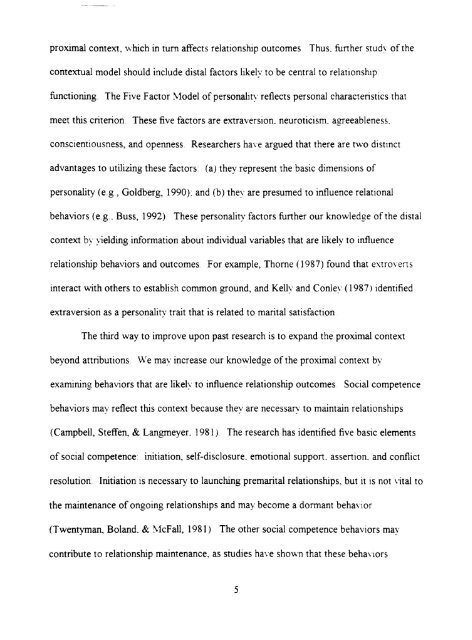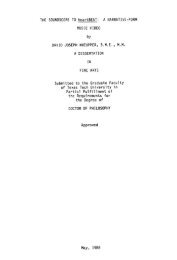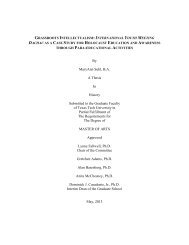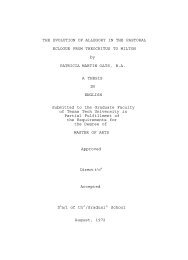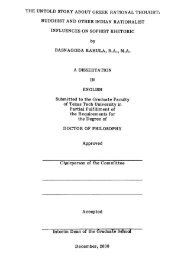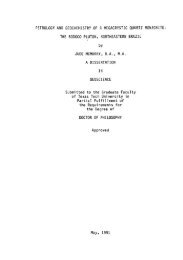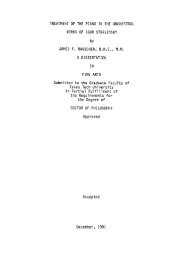THE FIVE FACTORS OF PERSONALITY AND INTERPERSONAL ...
THE FIVE FACTORS OF PERSONALITY AND INTERPERSONAL ...
THE FIVE FACTORS OF PERSONALITY AND INTERPERSONAL ...
Create successful ePaper yourself
Turn your PDF publications into a flip-book with our unique Google optimized e-Paper software.
proximal context, which in turn affects relationship outcomes Thus, further stud\ of the<br />
contextual model should include distal factors likely to be central to relationship<br />
functioning The Five Factor Model of personalit> reflects personal charactenstics that<br />
meet this criterion These five factors are extraversion. neuroticism. agreeableness.<br />
conscientiousness, and openness Researchers ha\ e argued that there are two distinct<br />
advantages to utilizing these factors: (a) they represent the basic dimensions of<br />
personality (eg,, Goldberg, 1990): and (b) they are presumed to influence relational<br />
behaviors (e.g.. Buss, 1992). These personality' factors further our knowledge of the distal<br />
context b\ vielding information about individual variables that are likely to influence<br />
relationship beha\aors and outcomes For example, Thome (1987) found that extrovens<br />
interact with others to estabhsh common ground, and Kelly and Conley (1987) identified<br />
extraversion as a personalitv' trait that is related to marital satisfaction<br />
The third way to improve upon past research is to expand the proximal context<br />
beyond attributions We may increase our knowledge of the proximal context by<br />
examining behaviors that are likely to influence relationship outcomes Social competence<br />
behaviors may reflect this context because they are necessarv- to maintain relationships<br />
(Campbell, Steflfen, & Langmeyer. 1981) The research has identified five basic elements<br />
of social competence: initiation, self-disclosure, emotional support, assertion, and conflict<br />
resolution Initiation is necessary to launching premarital relationships, but it is not \ital to<br />
the maintenance of ongoing relationships and may become a dormant behavior<br />
(Twentyman, Boland. & McFall, 1981) The other social competence behaviors may<br />
contribute to relationship maintenance, as studies have shown that these beha\iors


